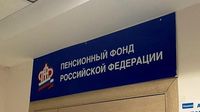The Russian pension system is undergoing significant changes, with new rules set to take effect that will impact millions of citizens. As the government implements its phased increase in retirement age and modifies pension requirements, many are left wondering how these changes will affect their future.
Since 2019, the Russian government has been gradually raising the retirement age—previously set at 55 for women and 60 for men. By 2028, this age will increase to 60 for women and 65 for men, a shift that has sparked widespread discussion among the populace. Starting from January 2025, individuals will need to accumulate at least 30 individual pension coefficients (IPC) to qualify for an old-age insurance pension, marking a significant change from previous years when this threshold was raised incrementally.
According to reports, men born in 1961 will now retire at 63, while women born in 1966 will retire at 58. This gradual increase in retirement age is part of a broader effort to ensure the long-term sustainability of the pension system. By 2028, the retirement age will reach 65 years for men and 60 years for women, aligning with the new requirements.
One of the most notable aspects of the reform is the increase in the minimum length of service required for an insurance pension, which is now set at 15 years. Additionally, the minimum number of pension points needed is 30, although this was previously 28.2 in 2024. If individuals do not meet the point requirement, they will be assigned a social pension, which can be accessed at 70 for men and 65 for women.
Starting in January 2025, insurance pensions will be indexed by 7.3%. For example, a pension that currently amounts to 23,400 rubles will increase to 25,108 rubles, while another at 17,300 rubles will rise to 18,563 rubles. Moreover, social pensions will see a more substantial increase of 14.7% beginning in April 2025. Importantly, the indexation of pensions for working pensioners, which has been suspended since 2015, will also resume.
In addition to these changes, insurance contributions have increased from 22% to 26%. The government is also considering personal pension savings when calculating pensions, introducing a long-term savings program with state co-financing. However, the period for the payment of funded pensions has been extended to 270 months (22.5 years), which will result in lower monthly payments for retirees.
For those over 80 years old and individuals classified as disabled (first group), automatic payments will be instituted. Furthermore, the process for families of deceased military personnel to receive pensions has been simplified, ensuring that they can access benefits more easily.
As for the transitional period in 2025, it is important to note that most Russians will not be able to retire based solely on age. Only those who qualify for early pensions or who have previously reached retirement age but postponed their retirement will be able to apply for pensions. This situation mirrors that of 2023 and will repeat in 2027.
In 2025, citizens with extensive work experience will have the opportunity to retire early. Men over 60 who have worked for 42 years and women over 55 with 37 years of service will qualify. Additionally, parents and guardians of children with disabilities can retire earlier—mothers at 50 with 15 years of service and fathers at 55 with 20 years. For those who have worked in hazardous jobs, men can retire at 50 and women at 45, provided they meet the necessary conditions.
Military personnel, after 20 years of service, are also entitled to retire, with similar conditions applying to employees of the internal affairs bodies and other security services. If individuals lack sufficient service time, they may still qualify for a pension at 45, provided they have over 25 years of total work experience.
For civil servants, the retirement age has gradually increased since 2017. By 2026, male civil servants will retire at 64 years and females at 59. This will further rise to 65 years for men and 60 years for women by 2028.
In terms of family dynamics, mothers with multiple children can also retire early under certain conditions. For instance, mothers of three can retire at 57, four at 56, and five at 50, provided they have at least 15 years of insurance experience. However, fathers of multiple children do not qualify for early pensions, regardless of their circumstances.
The pension reform has been met with mixed reactions across the country. While some view it as a necessary step toward ensuring the sustainability of the pension system, others express concern about the increased age and requirements. Many citizens are now faced with the challenge of planning their financial futures more carefully, as the rules governing their pensions have changed significantly.
As the government continues to implement these reforms, it remains crucial for citizens to stay informed about their rights and options regarding pensions. Checking individual pension coefficients through the Social Fund of Russia's website is advised for those looking to understand their standing better.
Overall, the ongoing pension reforms in Russia represent a significant shift in how retirement is approached, emphasizing the importance of planning and preparation for the future.






